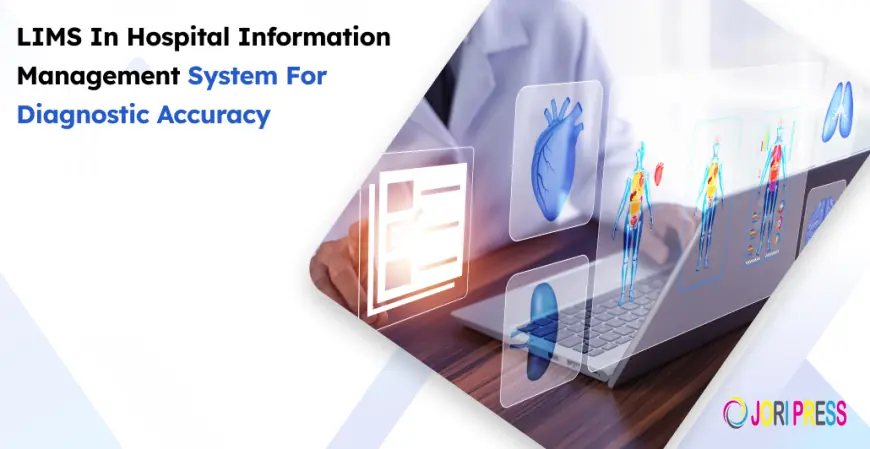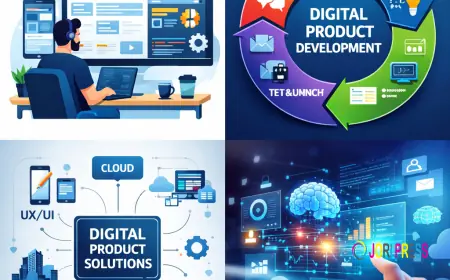LIMS in Hospital Information Management System for Diagnostic Accuracy
Discover how LIMS in Hospital Information Management System enhances diagnostic accuracy, optimizes lab workflows, and ensures reliable patient data management.

Introduction to LIMS in Modern Hospital Information Management
LIMS interfaced into an HMIS guarantees high diagnostic precision and prompt medical reporting. Advanced HMIS Software enables a hospital to consolidate patient details, bolstering accuracy in reporting and speeding-up lab workflow. AI integration in the Hospital Information Management System allows medical establishments to analyze data patterns for more assured treatment results. State-of-the-art Hospital Management Information Systems in Healthcare create a digital ecosystem where connected data work toward operational efficiency, transparency, and real-time accuracy for diagnostics across various departments.
Knowledge About Hospital Information Management Systems
A robust hospital management information system helps integrate laboratories and clinicians in guiding the entire process of diagnostics. A proper HMIS software would allow a hospital to digitize its lab processes in India with data integrity and reliability. The leading HMIS Software companies in India automate smartly and integrate LIMS. HMIS in India is steadily growing, affecting patient safety through data intelligence. Furthermore, these advanced health management information systems serve analytical dashboards to physicians, assuring diagnostic decision-making accuracy toward improved patient satisfaction in modern health facilities.
Digital Laboratory Integration and Smart Diagnostics in HIMS
1. Laboratory Operations
Complete HMIS Software helps in automation of the lab in the management of samples, reagents and technician operations. It removes the use of paper processes and improves the labor productivity of the laboratories. With this connection, clinicians can immediately access lab results and coordinate them better, eliminating delays in medical care. The software will turn diagnostics departments into digitalized, efficient organizations.
2. Enhanced Workflow Management
HMIS application in the laboratory information management of India helps in the organization of workflow. Automation is in place in scheduling tests, generating reports, and approving them. This decreases the time of turn around and assists clinicians to get the right data within a shorter time. The automation also reduces the workload on the staff and improves the work of the whole laboratory.
3. Quality Control
The health management information system helps the laboratories to institute stringent quality control measures. It tracks the usage of reagents used and logs the calibration details as well as making sure the test procedures are followed. The controls minimize discrepancies in diagnoses to provide consistent and reliable lab performance. This electronic framework is transparent and builds trust between the healthcare providers and patients.
4. Laboratory Record Automation
An AI in Hospital Information Management Systems is used in the generation, storage, and transmission of laboratory reports. Manual entry is eliminated by barcode scanning and automated test mapping, which minimize errors. It is a process that ensures protection of patient data and assists medical institutions to adhere to the national laboratory documentation and data privacy standards.
Nutrition and Diet Planning within HIMS
1. Personalized Nutrition Plans
With the help of a hospital management information system, medical workers can create tailored nutritional programs depending on the medical history, laboratory results, and food restrictions of a patient. The use of AI-based analytics in HMIS software will produce precise dietary recommendations, hence speeding up the healing process of the patients and lessening the chances of malnutrition or food allergies in a healthcare institution.
2. Optimized Meal Scheduling
Hospital Information Management System allows meal and meal timetables to be optimized based on the needs of patients. The system takes into account the times of treatment, laboratory tests, and prescriptions, so that to maintain the deliveries of meals in time, avoiding conflicts of the diet. This is the feature of HMIS in India and enhances the efficiency of the whole hospital, as well as making sure that patients will always have their nutrition needs met.
3. Nutrient Deficiency Detection
The developed modules of the hospital management information system are able to identify possible deficiencies of nutrients according to laboratory findings and dietary records. Through the combination of these insights and AI in a hospital information management system, hospitals are able to take action at the earliest stage, whether through the formulation of supplements or dietary changes to avoid complications and increase the accuracy of diagnosis.
4. Integrating Lab Results with Diet Planning
The HMIS software has an ability to combine lab results to further adjust a diet plan. As an example, blood sugar, cholesterol or vitamin levels determine dietary modifications. With the help of hospital management information systems, the hospitals make sure that the diets provided are evidence-based, which helps to plan treatment more accurately and recover more quickly, which in turn improves the efficiency of the overall hospital management.
Advantages of Digital Hospital Management Platforms
Digital hospital management systems improve professional efficiency in the health sector by bringing together all patient records, lab results, and diagnosis information in one place. As a result, medical personnel can gain access to correct and updated information very quickly, lessening the chances of human error and helping the making of clinical decisions take less time. The use of AI in such platforms means that the staff gets help in carrying out their daily tasks, monitoring patient changes, and managing resources, which consequently leads to an uninterrupted hospital flow.
Moreover, the platforms not only support the healthcare providers but also the patients with their ability to provide individualized treatment and dietary recommendations according to the patients’ vices through a thorough data analysis. Patients will be monitored and their changes and updates will be communicated continuously to the medical team thus no time will be wasted in the case of an emergency so the diagnosis will be quick and accurate and the whole healthcare process will be safer and more precise.
Prospective Developments in Healthcare Information Networks
All that just meant that future health information networks will be built on AI in diagnosis, predictive analytics, and remote patient monitoring, which will help to make health services more accurate and efficient. The cloud-based HMIS software will be more robust within an interface for the sharing of data between different facilities, thus enhancing the collaboration and informed decision-making processes regarding patient welfare. Thus, automated laboratory reporting and wearable health technologies will offer continuous feedback targeting managements of timely interventions and resulting in reduced lengths of hospital stay.
At the same time, secure data management and interoperability will ensure patient information safety across hospitals. The evolution of these technologies will allow hospitals to plan diagnostics expeditiously, treat, and achieve better patient outcomes and, hence, modern hospital management systems would be at the center of present-day healthcare delivery.
Final Insights on Hospital Information Management Systems
The advanced hospital management information systems provide overall improvement in patient care, diagnostic accuracy, and efficiency at the hospital level. Consolidated medical records, lab findings, and treatment histories prevent errors and smooth workflows in hospitals. AI-generated analytics back precision decision-making while integrated modules complement each other with communication between staff, dieticians, and physicians. Timely interventions, personalized care, and resource-effective management are all driven by these systems. HMIS platforms will remain important in the world of advancing healthcare technology for precise diagnostics, optimized treatment schemes, and successful patient outcomes in modern medical facilities.
What's Your Reaction?
 Like
0
Like
0
 Dislike
0
Dislike
0
 Love
0
Love
0
 Funny
0
Funny
0
 Angry
0
Angry
0
 Sad
0
Sad
0
 Wow
1
Wow
1


















































